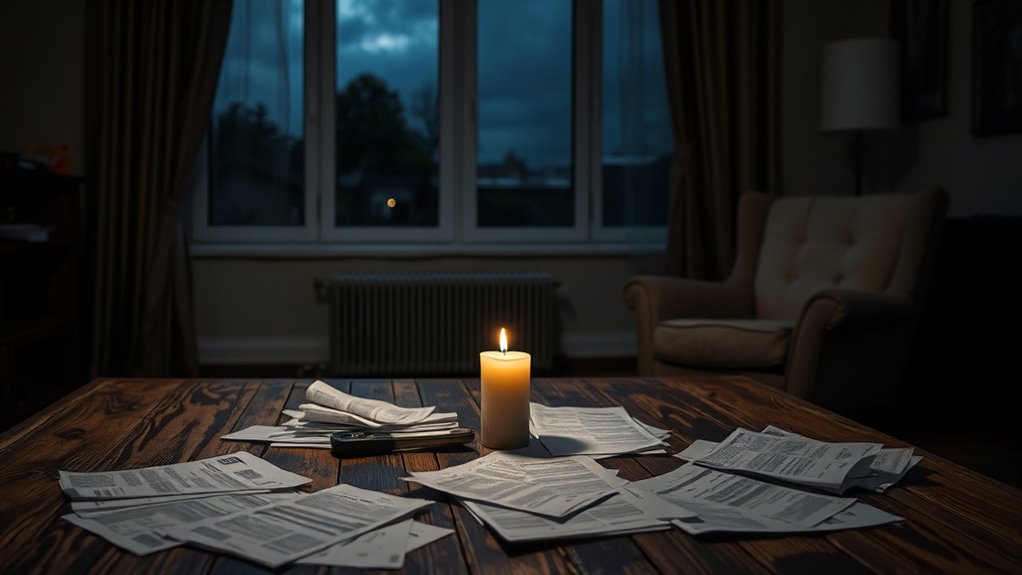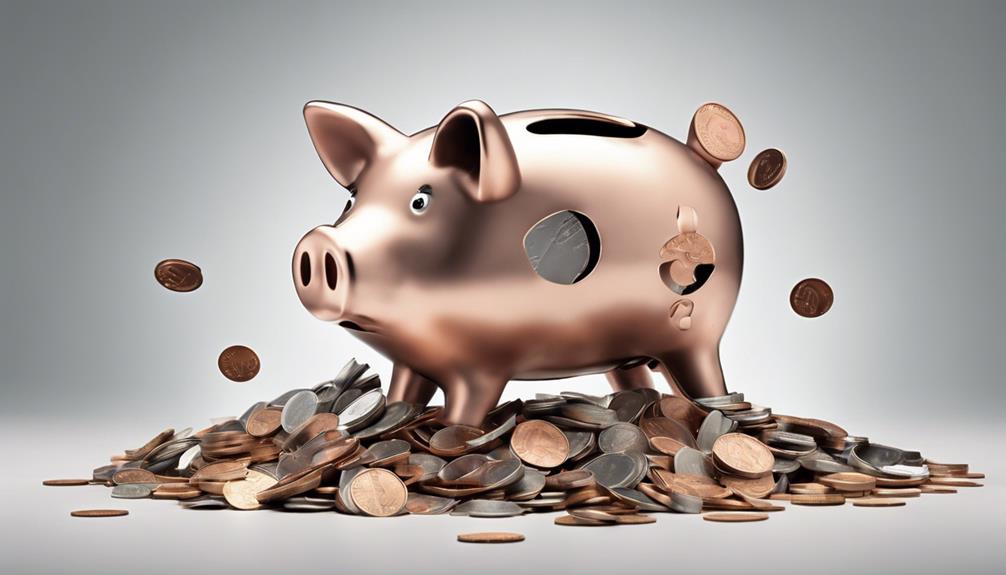Deciding whether to file for divorce or bankruptcy depends on your financial situation and relationship details. Financial stress often triggers both, and the timing can impact legal outcomes. Filing at the right moment can protect assets and simplify debt management. It’s important to weigh how each process affects the other, considering legal complexities and your long-term goals. If you want to understand the best approach for your case, exploring the key factors will give you clearer guidance.
Key Takeaways
- Consider filing bankruptcy before divorce to protect assets or after divorce to simplify debt division, depending on your financial situation.
- Timing your bankruptcy and divorce carefully can impact debt discharge, asset division, and overall legal outcomes.
- Consulting legal and financial professionals helps determine the best timing based on your debt levels and marital assets.
- Filing for bankruptcy during divorce may complicate proceedings; understanding how it affects asset division is crucial.
- Address financial stress proactively through planning to reduce its impact on both your divorce process and bankruptcy options.

Divorce and bankruptcy are often interconnected, with financial stress acting as a common catalyst for both. When you’re overwhelmed by debt, mismanaging your finances, or facing economic instability, it’s easy for these issues to compound. You might find yourself contemplating whether to pursue divorce, bankruptcy, or both, but understanding how they influence each other can help you make smarter decisions. Financial stress doesn’t just strain your wallet; it can strain your relationship, pushing you toward divorce, which in turn can complicate your financial situation further. High debt levels, poor financial management, and economic downturns are common triggers that set off this chain reaction. If you’re feeling the pressure, you might notice that disagreements about money intensify, and your ability to manage debts diminishes, leading to a sense of hopelessness.
Legal processes around both divorce and bankruptcy are complex and often intertwined. Filing for bankruptcy during a divorce can create legal complications, especially when it comes to dividing assets or determining responsibility for shared debts. Bankruptcy can influence how assets are split, sometimes forcing you to consider how debts are allocated or discharged. Timing matters—filing for bankruptcy before or during divorce can alter the proceedings, potentially delaying or complicating the process. You’ll likely need specialized legal advice to navigate both processes effectively. On the other hand, divorce can also impact bankruptcy, especially when joint debts are involved. Distributing assets and debts through divorce settlements can affect your ability to qualify for bankruptcy or determine what debts are dischargeable. Your credit score may take a hit from divorce, influencing your bankruptcy options and outcomes. Divorce might also give you the chance to become financially independent, which can alter your bankruptcy needs. Recognizing the importance of financial planning is essential in managing these interconnected processes effectively.
Frequently Asked Questions
Can I File for Divorce and Bankruptcy Simultaneously?
Yes, you can file for divorce and bankruptcy simultaneously, but it’s complicated. You’ll need to coordinate with both your divorce and bankruptcy attorneys to avoid conflicts. The bankruptcy court’s automatic stay may pause your divorce proceedings, and the order of filings influences asset division and debt discharge. Be prepared for increased legal costs and complexity. Careful planning guarantees you protect your assets and meet your financial and legal goals efficiently.
How Does Divorce Impact My Bankruptcy Case?
Think of your bankruptcy as a ship steering through stormy seas; divorce acts like a sudden iceberg ahead. When you divorce, it can delay or complicate your bankruptcy, freezing assets and halting divisions until the court clears the way. You might get less from your estate, and the emotional strain rises. Staying coordinated with your legal advisors ensures both processes flow smoothly, preventing hidden debts or frozen assets from sinking your financial future.
Will Bankruptcy Affect My Divorce Settlement?
Bankruptcy can substantially impact your divorce settlement. It may discharge some joint debts, alter asset division, or change your financial obligations. However, non-dischargeable support payments remain enforceable, and creditors can pursue the non-bankrupt spouse for joint debts. If you file before or during your divorce, it could influence asset distribution. Always disclose your financial situation honestly to protect your interests and consult a lawyer to navigate potential consequences.
Should I Wait to File Bankruptcy Until After Divorce?
Waiting to file bankruptcy until after divorce can be like building a sturdy foundation before constructing a house. If you do it afterward, you’ll have clearer asset protection and won’t need to coordinate with your ex. Plus, it simplifies your financial picture. However, consider how debts and assets are divided, and consult a legal expert to determine the best timing for your situation. Planning now can save you from future storms.
What Are the Tax Implications of Bankruptcy During Divorce?
When filing bankruptcy during divorce, you’ll face tax implications like potential loss of refunds if they’re in joint accounts, and some tax debts may not be dischargeable. Your income and tax refunds could be considered part of the bankruptcy estate, which might affect your financial situation. It’s important to understand state exemptions and consult with a tax professional to navigate the impact on your divorce and tax obligations.
Conclusion
Deciding to divorce and declare bankruptcy demands daring decisions and diligent deliberation. Don’t delay, delve into details, and discuss dilemmas with dedicated experts. By balancing bravery and boundaries, you’ll break free from burdens and build a brighter, renewed beginning. Remember, facing fears with focus and foresight fosters freedom and fresh starts. So, if you’re contemplating change, act now—embrace the chance to create a clean, confident new chapter.









